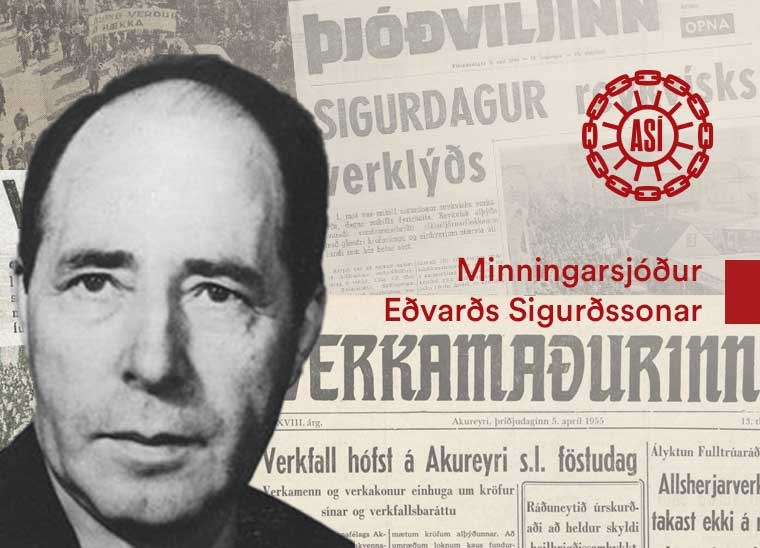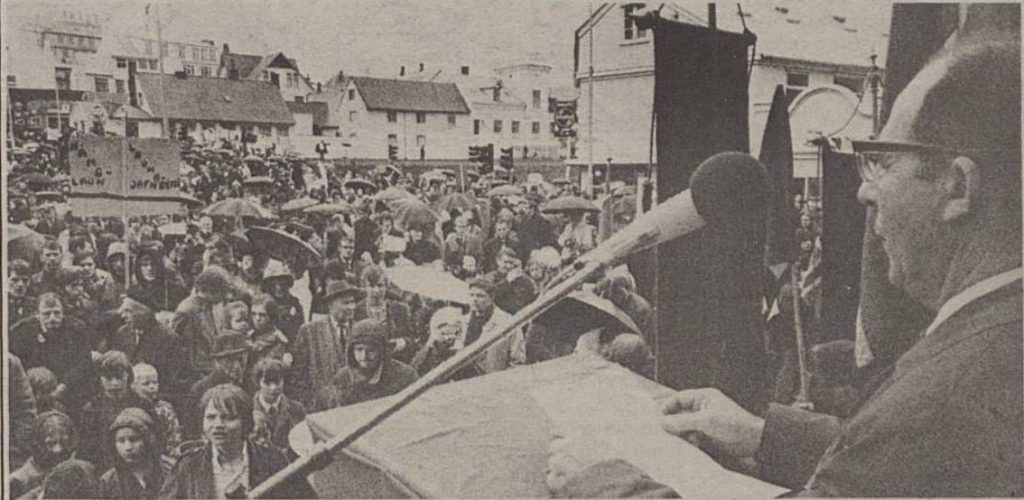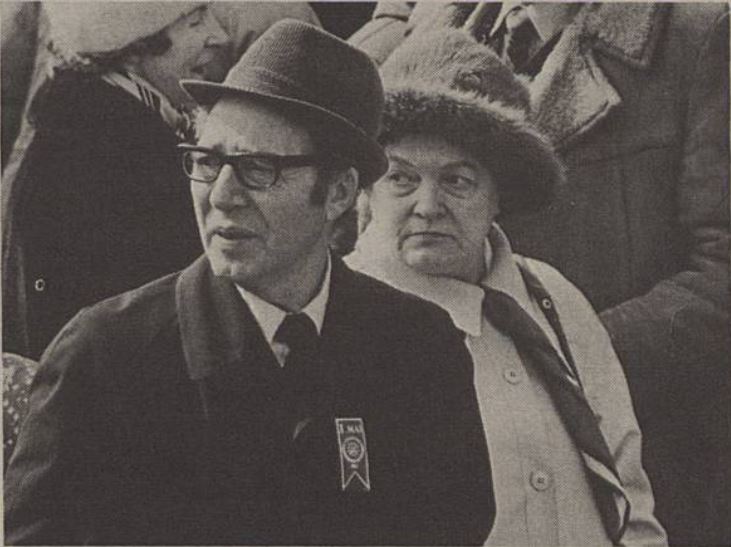
Eðvarð Sigurðsson’s memorial fund is advertising for applications. The fund provides grants for research and publication of projects that particularly concern the Icelandic labor market, the interests of workers, and the activities of the labor union movement. If it is a final project in a study, it must at least be at master’s level. The maximum amount is ISK. 1,000,000. Applications for the grant must be received by April 15, but the fund is allocated on May 1 each year.
The Eðvarð Sigurðsson Memorial Fund was established in 1983 in memory of Eðvarð Sigurðsson, chairman of Dagsbrún labor union. The fund is managed by the Icelandic Federation of Labour, ASÍ. A special regulation applies to the fund. The application form can be found here.
Convicted for treason against the British empire
Eðvarð was one of the most significant, energetic, and powerful leaders of Icelandic workers in the last century, always fighting for the masses and their conditions. He was born in 1910 in a Garður, the son of sailor Sigurður Eyjólfsson and housewife Ingibjörg Sólveig Jónsdóttir.
Eðvarð worked various labor jobs and started participating in the labor movement at a young age. He joined Dagsbrún in 1930 and between 1935 and 1936 he had already become one of the most active opponents of the then board of the union. He joined an opposition group of communists within the union, who wanted it to act harder against unemployment, and to be more radical and active. At the beginning of the Second World War, Eðvarð had already become undisputed as one of Dagsbrún’s most powerful leaders.
In 1942, Eðvarð was arrested for his involvement in the so-called Dreifibréfs case, when a letter in English was distributed among British soldiers and they were urged not to undertake the work of Icelandic workers, as members of Dagsbrún were on strike at the time. On the thirteenth day of Christmas, British soldiers came rushing to Litla-Brekka at Grímsstaðaholti, the turf house where Eðvard lived with his mother and siblings, and captured him. Eðvarð, with three of his companions, was convicted of treason against the British Empire, even by an Icelandic court. He sat in prison for four months as a result.
Union and a Socialist leader
The following year, 1942, Eðvarð was elected to Dagsbrún’s board and two years later he was hired as an employee of the union. Eðvarð became chairman of Dagsbrún in 1961 and served as such until 1982. He also became chairman of the Workers’ Union from its foundation in 1964 and served until 1975. In addition, Eðvarð sat for three decades on the board of ASÍ and was deputy chairman of the union twice.
As the main leader of Reykjavík workers for decades and in the leadership of the ASÍ, Eðvarð played a great part in the main progress issues for Icelandic workers and the victories of the labor movement during his time.
Eðvarð was elected member of parliament for Reykjavík in 1959 and sat in Alþingi for two decades. He was for a long time one of the leaders of the Socialist Party and later the People’s Alliance.

Eðvarð put the conditions of workers before his own health
Upon Eðvarð’s death, the famous union leader Guðmundur J. Guðmundsson, Guðmundur Jaki, wrote a memorial for his colleague of many years in Þjóðviljinn, but Guðmundur was Eðvarð’s deputy chairman for many years and took over as chairman of Dagsbrún when Eðvarð left that position.: “Amid a labor dispute in 1965, with a ban on overtime and limited strike action, Eðvarð and I had already divided our work. He was the chairman of the negotiation committee, but I was in charge of the implementation of actions and various limited aspects of the agreements. Then I got a call early in the morning. Eðvarð Sigurðsson was on the phone and calmly informed me that he had a heart attack that night, he had refused the doctor to take him to the hospital because he had to complete some documents so that it would be easier for me to take over the negotiation committee. He now asked me to take him to the hospital, – but stated that it could not be in an ambulance.
When I came to pick him up, he calmly introduced me to the situation and gave me good advice. When we got to the hospital, he refused to let me hold a bag he was carrying and walked up the stairs by himself. He said goodbye with a handshake and asked me to do well. Negotiations took place all the following night, but on the phone, I received the information from Landakot that Eðvarð was fighting his death.
Agreements were reached some time later and Eðvarð got well and got to work again.”
Eðvarð was such a leader that, despite being practically on his deathbed, it was his priority to bring matters to a conclusion that could achieve the best possible outcome for workers.
